On the afternoon of August 7, at the regular Government Press Conference, Mr. Huynh Van Chuong, Director of the Department of Quality Management, Ministry of Education and Training (MOET) answered questions from the press about mandatory accreditation content for university programs and the application of artificial intelligence in assessing accreditation results and evaluating school reports.
Mr. Huynh Van Chuong said that the Ministry of Education and Training is focusing on amending 3 laws: Law on Education , Law on Higher Education, Law on Vocational Education; along with that, many decrees and circulars will take effect immediately implementing the Law on Teachers. Currently, the Government is submitting 3 laws to the National Assembly Standing Committee.
Regarding the Law on Higher Education, Chapter 6 is the state education management sector on ensuring and assessing the quality of higher education (from Article 32 to Article 36), which includes regulations on assessment of training programs (including mandatory assessment of higher education institutions; mandatory assessment of teacher training programs, health and law fields).

Mr. Huynh Van Chuong, Director of the Department of Quality Management, Ministry of Education and Training, answered reporters' questions about the proposal related to university program accreditation in the draft Law on Higher Education (amended). (Photo: VGP/Nhat Bac)
As for training programs in other fields, industries and groups of industries, the Minister of Education and Training is responsible for specifying the list.
The Director of the Department of Quality Management said that means, in the draft revised Law on Higher Education, the compulsory accreditation mechanism is not abolished but the authority is delegated. This re-establishes the scope of compulsory accreditation for institutions that approach risks and prioritize community benefits. These two things are consistent with international practices, especially organizations in Europe, the US and many other countries, in the form of prioritizing and identifying risks for accreditation.
At the same time, the decentralization of the Minister of Education and Training demonstrates the role of decentralization and delegation of power in implementing the law to the Government and the Minister, ensuring the principles of classification and priority for accreditation in accordance with practice.
" Thus, the Law on Higher Education will not eliminate mandatory accreditation but will give flexible and controlled authority to the Ministry of Education and Training ," said Mr. Huynh Van Chuong.
Explaining more clearly, Mr. Huynh Van Chuong said that some accreditation programs are regulated by the Ministry of Education and Training because the ministry has many information channels to determine quality assurance. Quality accreditation is an information channel for ensuring the quality of higher education; but there are many other information channels such as reporting, explaining, surveying, inspecting, checking... to decide to what extent to strengthen accreditation, depending on the industry group, industry block and field; at the same time, this ensures bilateral international integration when recognizing each other's degrees. The accreditation decision is to avoid waste, impracticality or formality.
This revised Law on Higher Education also strengthens the "internal quality assurance" system. That is, universities are assigned to strengthen their internal quality systems from quality assurance to quality assessment. The State has the role of managing, controlling and inspecting this; thereby reducing the list of mandatory accreditations.
Regarding the application of artificial intelligence in assessing inspection results and evaluating school reports, Mr. Huynh Van Chuong said that the Ministry of Education and Training has issued a circular on monitoring and evaluating the quality of inspection centers.
Accordingly, the State must also supervise and monitor the centers that inspect universities at a higher level; including implementing flexible evaluation and licensing for 5 and 10 years. However, there is currently a problem: there is still a lack of legal basis to evaluate the reports of the inspection team. Therefore, this law supplements regulations on state management of the appraisal of inspection results and handling of violations of inspection centers (if any).
According to Mr. Huynh Van Chuong, in the context of applying information technology, digital transformation, and applying artificial intelligence, which is a major policy of the Party and the State, the education and training sector is implementing many tasks related to AI. Many international organizations also recommend that educational and training institutions increase the use of AI in the exploitation, state management, and administration of higher education institutions; using artificial intelligence to initially review both qualitatively and quantitatively self-assessment and inspection reports to detect abnormalities.
" This certainly makes AI faster; it can give early warnings for report appraisal. However, using AI is not a replacement for humans but only a preliminary step to help reduce time and detect problems in reports. This is very suitable in current conditions and will certainly be enhanced, not only for this field but also for many other fields of education and training ," the Director of the Department of Quality Management emphasized.
According to the Director of the Department of Quality Management, the revised Law on Higher Education project affirms the role of quality accreditation as a legally mandatory tool, but also provides a controlled legal framework, decentralizing the Government's authority to the ministry in each clause; gradually bringing AI into educational activities, including accreditation, is a step towards compliance with the policies and resolutions of the Party, the State and the education and training sector.
Source: https://vtcnews.vn/su-dung-ai-khong-phai-de-thay-the-con-nguoi-tham-dinh-chat-luong-giao-duc-ar958546.html



![[Photo] National Assembly Chairman Tran Thanh Man attends the VinFuture 2025 Award Ceremony](/_next/image?url=https%3A%2F%2Fvphoto.vietnam.vn%2Fthumb%2F1200x675%2Fvietnam%2Fresource%2FIMAGE%2F2025%2F12%2F05%2F1764951162416_2628509768338816493-6995-jpg.webp&w=3840&q=75)


![[Photo] 60th Anniversary of the Founding of the Vietnam Association of Photographic Artists](/_next/image?url=https%3A%2F%2Fvphoto.vietnam.vn%2Fthumb%2F1200x675%2Fvietnam%2Fresource%2FIMAGE%2F2025%2F12%2F05%2F1764935864512_a1-bnd-0841-9740-jpg.webp&w=3840&q=75)







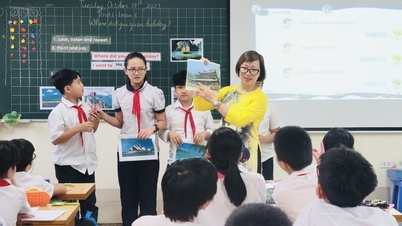

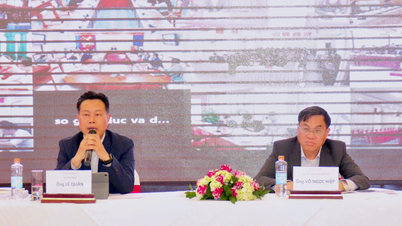







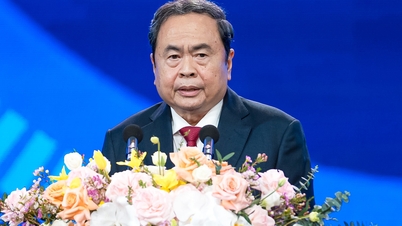
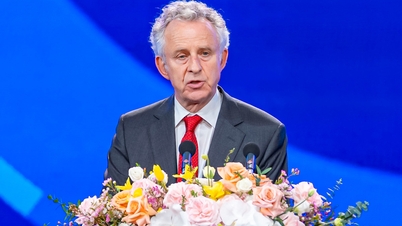











































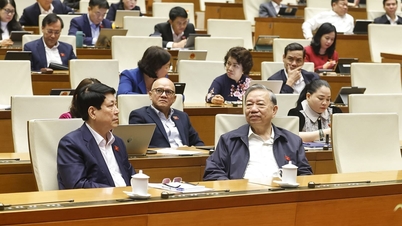













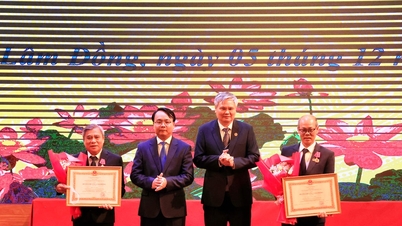



















Comment (0)